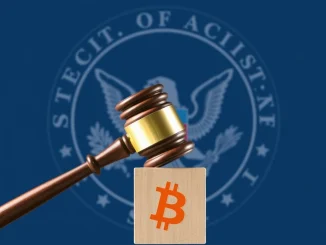
A significant point of contention has emerged in the ongoing debate around establishing clear rules for the digital asset market in the United States. Democratic staff in the U.S. House of Representatives have raised concerns, claiming the Securities and Exchange Commission (SEC) provided its technical analysis of the proposed CLARITY Act crypto bill to Republican counterparts while allegedly withholding it from Democrats.
Allegations Surface Regarding SEC Crypto Analysis
The core of the issue lies in the standard practice of the SEC offering technical analysis to lawmakers. This analysis helps legislators understand how proposed bills might impact the agency’s operations and existing regulations. According to reports, Democratic staff assert this crucial information, specifically regarding the newly introduced CLARITY Act, was shared with Republicans but not with their Democratic colleagues on the House Financial Services Committee.
This alleged differential treatment has prompted a response from key Democratic figures. Rep. Maxine Waters, the Ranking Member of the House Financial Services Committee, reportedly plans to formally request that SEC Chair Gary Gensler (Note: The source mentions Paul Atkins, but Gary Gensler is the current SEC Chair. Assuming a potential typo or reference to a different role/timeframe, using the current chair is more relevant for a news piece) share the analysis equally with both parties. Such a request highlights the importance placed on bipartisan access to agency insights during the legislative process, especially concerning complex areas like crypto regulation.
Understanding the CLARITY Act: A New Push for Crypto Regulation
The legislation at the center of this controversy is the CLARITY Act. Positioned as a successor or complementary effort to previous attempts like the FIT21 bill, the CLARITY Act aims to establish a clearer regulatory framework for the U.S. crypto industry. Its primary goal is to provide certainty for businesses operating in the digital asset space and protection for investors.
Key aspects of the CLARITY Act include:
- **Jurisdiction:** Granting the Commodity Financial Trading Commission (CFTC) oversight over digital commodity spot markets.
- **Registration Paths:** Creating pathways for crypto platforms to register with both the SEC and the CFTC, depending on the nature of the digital assets they handle.
- **Compliance:** Requiring entities to comply with existing financial regulations, such as the Bank Secrecy Act.
- **Exemptions:** Providing specific exemptions for certain decentralized finance (DeFi) protocols and wallet service providers, recognizing their unique structure.
- **Custody Rules:** Establishing new rules for approved digital asset custodians to ensure the safe handling of customer funds.
This bill represents the ongoing effort within Congress to define roles for regulators and create a predictable environment for innovation while mitigating risks in the US crypto policy landscape.
Why Does Access to SEC Crypto Analysis Matter for US Crypto Policy?
Technical analysis from agencies like the SEC is vital for lawmakers. It provides expert insight into how proposed legislation would function in practice, potential unintended consequences, and whether it aligns with existing legal frameworks. For a complex and rapidly evolving sector like digital assets, this technical feedback is arguably even more critical.
Allegedly providing this analysis to only one political party can be seen as undermining the legislative process, which ideally relies on informed decision-making across the political spectrum. Democrats argue that without equal access to the SEC’s views on the CLARITY Act, their ability to effectively debate, amend, and contribute to the bill is hindered. This situation adds another layer of political tension to the already complex debate surrounding crypto regulation in the United States.
The Broader Implications for Crypto Regulation
This incident underscores the partisan challenges in crafting comprehensive crypto regulation. While there’s bipartisan agreement on the need for clarity, disagreements persist on the specifics, including the division of authority between the SEC and CFTC, and the definition of different types of digital assets.
The claim by House Financial Services Democrats highlights the deep mistrust that can arise when information flow is perceived as uneven. Such disputes can slow down legislative progress and make it harder to pass bills like the CLARITY Act, which require cooperation to navigate through Congress.
Summary: A Political Hurdle for the CLARITY Act
The accusation by U.S. House Democrats that the SEC selectively shared its CLARITY Act analysis with Republicans introduces a significant political hurdle for the proposed crypto bill. This controversy centers on the principle of equal access to information essential for informed lawmaking on crucial US crypto policy. While the CLARITY Act aims to bring much-needed regulatory clarity, the current dispute risks deepening partisan divides and potentially impacting the bill’s path forward. The resolution of this claim and the SEC’s response will be closely watched by those hoping for a clear and fair regulatory environment for digital assets in the United States.



